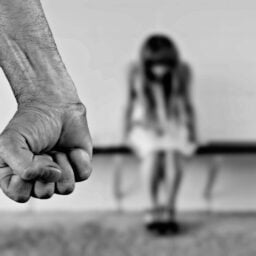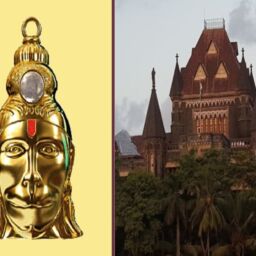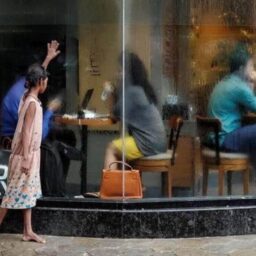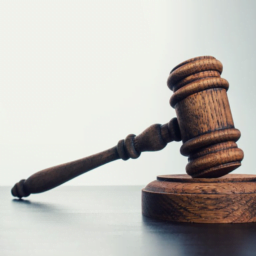“In a racist society, it is not enough to be non-racist. We must be anti-racist”
– Angela Davis
Racism or Racial Discrimination is a belief about the race of the people, and this supports the view that people’s capabilities and qualities depend on their race that a particular race is superior and a particular is inferior. It creates inherent hate in people’s minds about the people of another race. Racism can be found in every country of the world, though there are differences in the form of it; e.g., biological racism, sexual racism, cultural racism, internalized racism, institutional racism, colourism, xenophobia, age, aversive, etc.
In a country like India, where such diverse groups and societies are living, it becomes very complicated in terms of defining “Exactly what type of racism exists here?” Because here, many types of racism exist, such as; regional racism, colourism, cultural racism, racism based on different face structures, etc. World Values Survey published in a report that the second most racist country is India, where people from other countries are treated differently by some Indian people, based both on skin colour and country of origin.
And in India, we see the obsession of people with fair skin, and it is the main reason for colourism. We try to find whiteness in a country, where people are of different shades of brown. Even in TV ads, we see a girl/boy was sad when they are of dark skin and after applying “certain” cream, they eventually become a ‘fair-skinned happy person’. These types of things do nothing but encourage the racist mentality of people, especially in a country like India, where people have the mentality that being born as a fair-skinned person is a privilege.
India has a weird combination of prejudice and ignorance based on centuries-old discriminatory practices i.e., caste system when communities are differentiated based on their jobs and assigned to a particular caste. Generally, the poor class (Dalit) were of dark skin and people of higher caste were not allowed to eat with people not of their caste or marry into their communities. There are huge differences of cultures in India, and people tend to have suspicions about those people who are not like them and they have a lot of prejudice about other cultures too. In addition to that our country was previously ruled by the whites i.e., the Portuguese, the Dutch and French traders, the Mughals, the British, all of them were relatively fairer than the Indians, it created a typical mindset on people that fair people have more power than someone who has dark skin. Thus, these are some of the factors which created racist behaviour more deep-rooted in India.
In 2020 when Covid-19 cases started to rise in India, it has affected the entire world, and people whose physical features resemble the Chinese have faced racism and acts of racial discrimination across the planet due to the origin of the virus in Wuhan, China. In India the people of the northeast also faced these behaviours, though they have always faced discrimination and being called “Chinese”, “Chinki” but the Covid-19 gave them one more name i.e., “coronavirus”. There were reported many crimes and harassment against them, some of them were forcefully quarantined, although they had no covid symptoms. The Rights and Risks Analysis Group (RRAG) has recorded 22 reported cases of racial discrimination or hate crimes from 7 February 2020 to 25 March 2020.
There is discrimination against other country’s people too in India, though at the same time there exist a thing called “white man privilege” means if the foreigner is from country like Africa, he will face discrimination, if he/she is from west e.g., a country like Dutch, the treatment by people will completely change towards them.
Although there are laws that prohibit discrimination e.g., Article 15, Article 16, and Article 29 of the Constitution of India, Section 153A of the Indian Penal Code (IPC) also includes the word “race” and penalized hatred based on race viz. imprisonment up to three years with or without fine. India had also ratified the International Convention on the Elimination of All Forms of Racial Discrimination (ICERD) in 1968 and vide the Gazette of India notification September 2010, the Ministry of Home Affairs made ICERD applicable at the domestic level under the Protection of Human Rights Act (PHRA) of 1993.
But it doesn’t seem that these laws were able to cure or solve the problem or reduce the crimes, and India still fails to define Racism and there is not any particular law that criminalizes Racism. The ambit of section 153A of IPC is so wide that it is always misinterpreted by the police officials and the crimes of Racism are always reported in Section 354 (assault or criminal force to woman with intent to outrage her modesty) and Section of 509 (insult to the modesty of women) if the victim is a woman but there are no provisions when the victim is a male.
There was a submission by the National Campaign Against Torture which recommends insertion of the following provisions to criminalize racism under the Indian Penal Code:
- Inclusion of Section 52B that defines Racism and Racial Crimes
- Inclusion of Section 153C that penalize Imputations, assertions prejudicial to human dignity
- The inclusion of Section 509 penalizes those people who use the word, gesture or act intended to insult a member of a particular racial group or any race.
There was the introduction of the Anti-Discrimination and Equality Bill, 2016 by MP Shashi Tharoor Though this bill didn’t deal exclusively with racial discrimination and it included other factors like sexual orientation, marital status but it also included racism and vulnerable state of Northeast people and African people in India. It was a ray of hope for many people but the Treasury Benches, understandably, were not interested in moving it ahead, and the Bill lapsed with the dissolution of the Lok Sabha in 2019. In the current context, the only way of progressive legislation for states is to pass anti-discrimination legislation in their respective jurisdictions.
After analyzing the Indian society, we find that racism cannot be said to as subjective, and not only the North-Eastern people who suffer these atrocities, it is in every part of this country and people of every region see another region from low eyes e.g., Biharis are mocked in big states like Maharashtra and Delhi. The North Indians are always subjected to as poor and uneducated people in Southern parts, all the South Indians are called Madrasis in the Northern parts. All the Nepalis are ridiculed and being called Bahadurs. People from certain states are more subject to regionalism in the rest of India, even now and then we listen to news about crimes against these in such states.
In 2015, Kiran Rijiju assured that there would be a specific law in place against race crimes and this would able to make the punishment more stringent. The inclusion and amendment would be necessary to make race crimes more specific so that even the police and the prosecution have greater power to deal with such cases. But we haven’t seen a change in law till today.
Apart from adding laws for penalizing such heinous acts, we should also come in the front and oppose Racism. For example, we should do the following things;
- Give information to the people of our community about others and make them aware that this little Racist behaviour affects the victims;
- Always speak whenever we see someone doing Racist behaviour with others;
- We should promote the rights of minority groups;
- We should include anti-racist education and policies in schools and Colleges, etc.
Lastly, it is worth pointing out that when we fight for our separate state based on language, religion, caste, etc., we are instigating this racism in our society. We as a people of a diverse country have to learn to live with each other, respect and accept each other. because no law can change the society if the people of society don’t want to change.
Author(s) Name: Chittrupa (Student, University of Allahabad)















